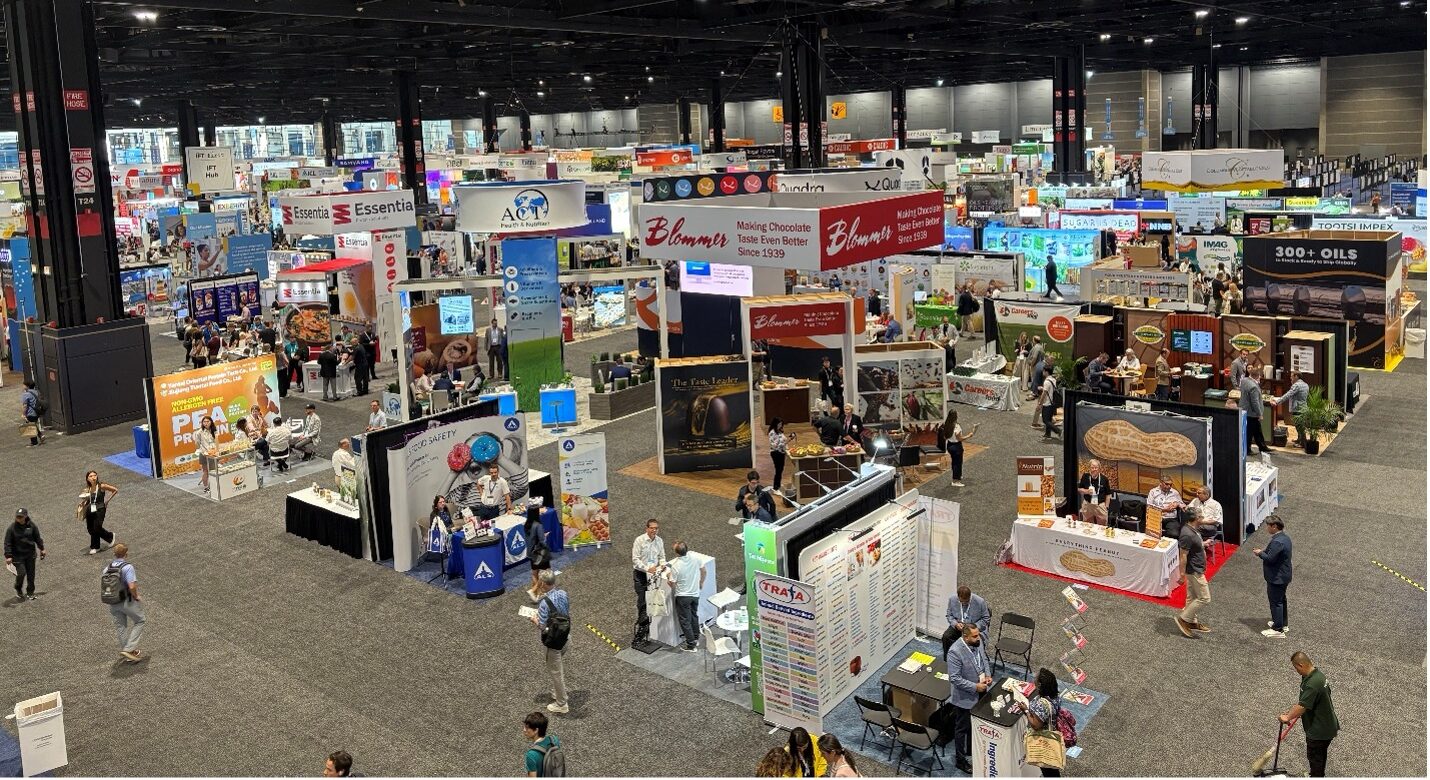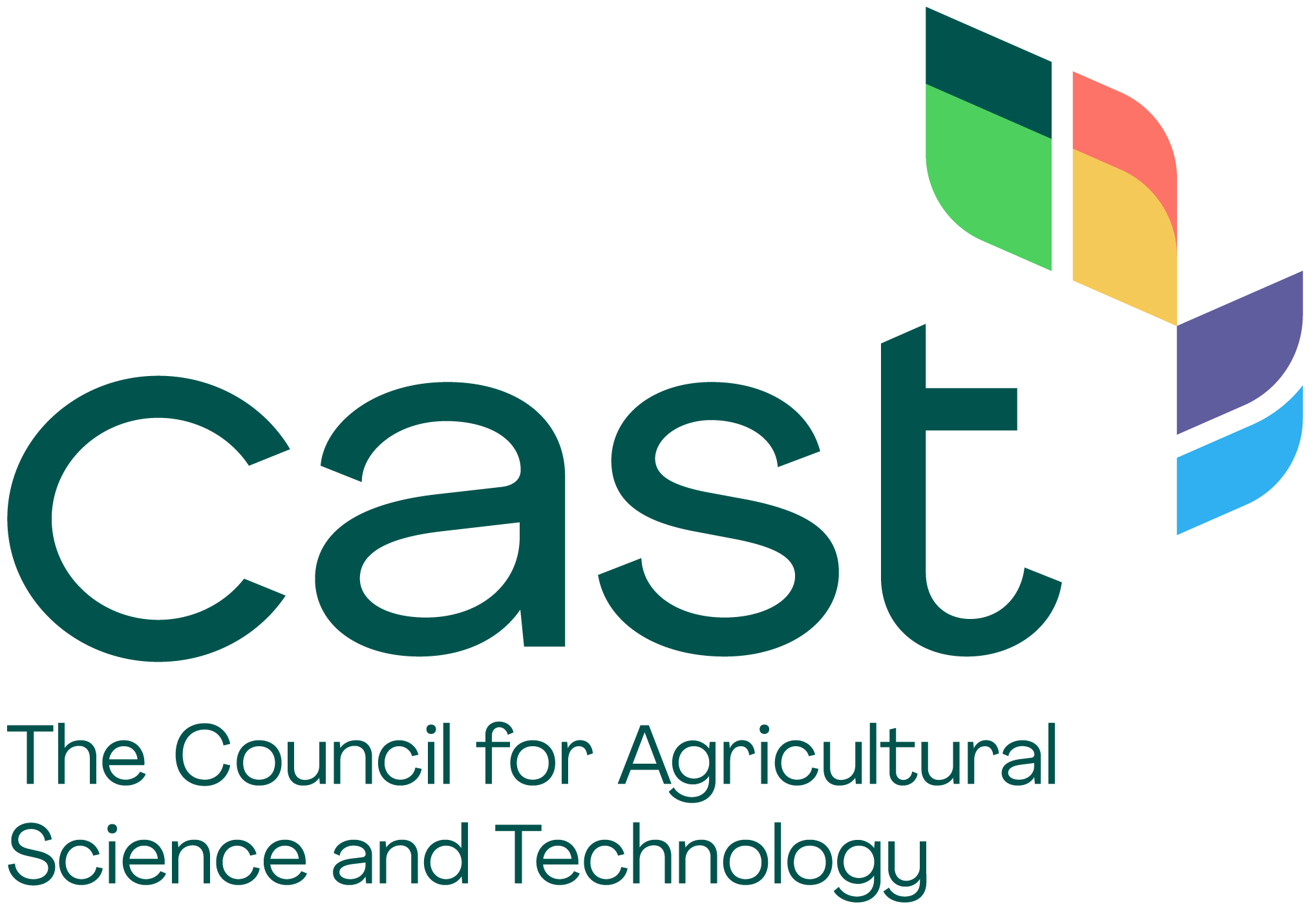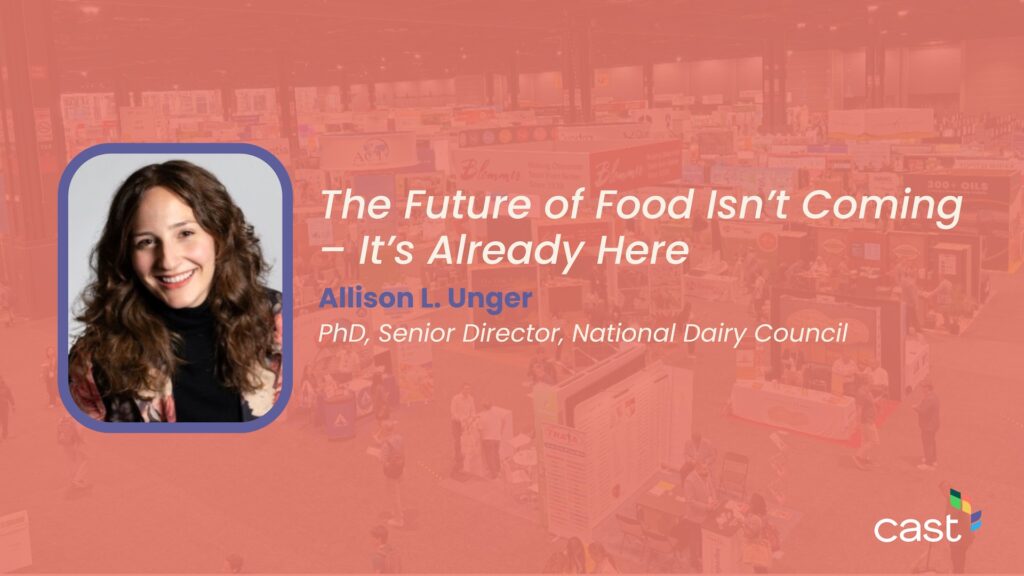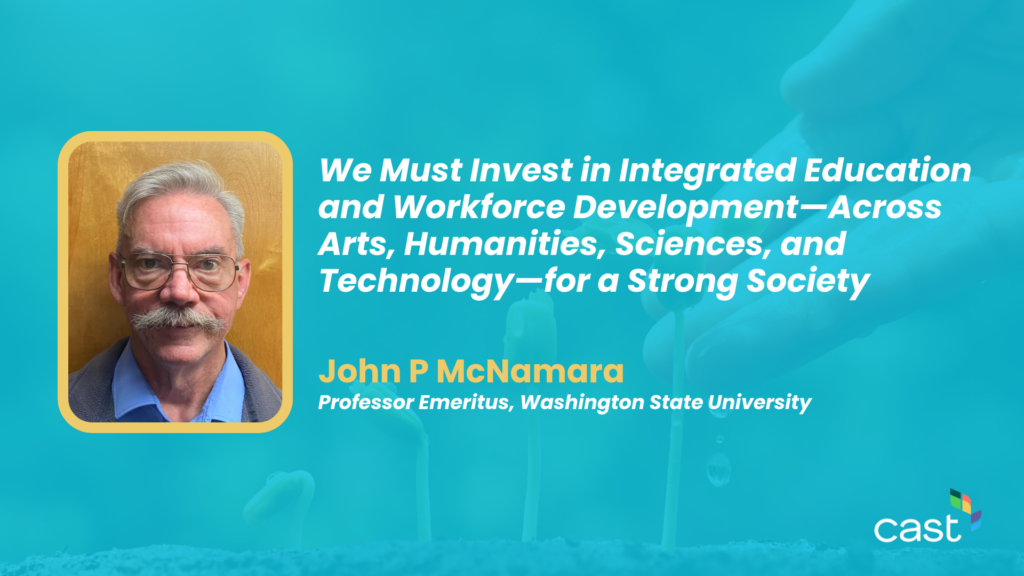By Allison L. Unger
PhD, Senior Director, National Dairy Council
Views expressed are my own and do not necessarily reflect those of my employer.
For the first time, this year I attended the Institute of Food Technologists (IFT) annual conference in Chicago – IFT FIRST, Food Improved by Research, Science, and Technology. In reflecting on the key theme threaded throughout every presentation and product exposition, the call to action was loud and clear – the future of food is here, and we need to be ready for it. How? Through science, collaboration, and a proactive mindset that may challenge long-held assumptions about how to nourish the planet.
Michiel Bakker, President of Culinary Institute of America and former head of Google’s global workplace programs, kicked off Monday’s sessions with a provocative keynote, underscoring that our current global food system may not be ‘fit for purpose’ – as he puts it, this is not a failure, but perhaps a ‘design mismatch,’ one that can be addressed through more intentional, innovative and integrated approaches. His call to rethink food not just as product, but as a holistic experience, underscored the importance of bridging health, sustainability and consumer relevance in every bite.
Trust and transparency surfaced as another critical point raised throughout many presentations. As a scientist, one part of this message that struck me was that, actually, scientific facts alone are not enough to shift consumer behavior or earn back the public’s trust. What if we focused on evidence-based, empathetic storytelling and values-driven communication? Embracing interdisciplinary strategies – such as partnering food and nutrition scientists and decisionmakers with communicators, behavioral experts, and social media influencers – could be vital to addressing misinformation and meeting people where they are.
IFT’s conference also highlighted the accelerating impact of artificial intelligence (AI) and GLP-1 agonists – two forces fundamentally reshaping the food landscape. AI is quickly becoming an indispensable tool across product development, supply chain management and research. Importantly, AI is not a replacement for human insight and empathy – IFT’s incoming President, Peggy Poole, explicitly stated when showcasing CoDeveloperTM, an AI-powered R&D platform developed by IFT, that “AI should support scientists, not replace them.” Steve Brown, another keynote speaker and a former executive at Google DeepMind and Intel, prompted attendees to consider: What if we embraced AI (and robots!) as collaborators to extend our capacity to design smarter systems and solve complex problems facing the food system? Similarly, the rise of GLP-1 agonist medications has seen very real changes in consumer purchasing patterns, prompting many in the R&D space to reconsider how food quality, nutrition, and sensory experience intersect.
Sessions on everything from sustainability, product innovation, food safety, public health initiatives, consumer education and more made clear that addressing the health of people and the planet will entail cross-sectoral collaboration and a systems-based mindset. IFT President summed it up beautifully – this week’s conference marked “not just an event, but a movement.” To build a healthier, more sustainable global food future will clearly require thinking beyond the plate, beyond the silo and beyond business as usual. The future of food is happening now.

About Voices of Agriculture
The Voices of Agriculture series is designed to provide a platform for diverse perspectives on issues, trends, and experiences within the agricultural community. These articles aim to foster dialogue, share insights, and highlight the many voices that contribute to the ongoing conversation about agriculture and its future.
Disclaimer
The opinions expressed in this article are solely those of the author. They do not necessarily represent the views, positions, or policies of the Council for Agricultural Science and Technology (CAST). CAST provides this space to encourage thoughtful discussion, but does not endorse any specific viewpoints shared in these pieces.




